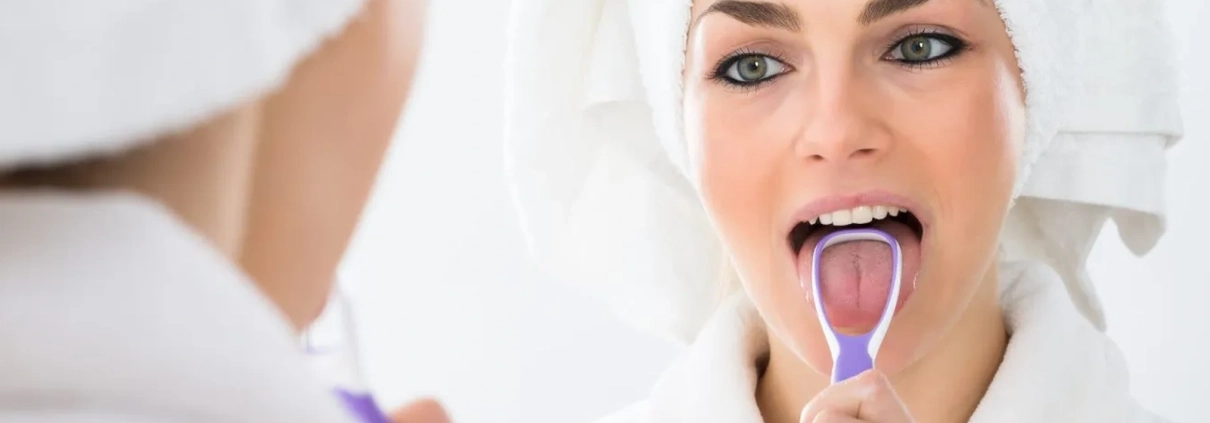Ditch Your Mouthwash… and Other Tips for Fresh Breath!
Do you find yourself frequently reaching for gum or mints to mask your bad breath? If so, you’re not alone – bad breath, or halitosis, affects millions of people. The good news is that there are simple steps you can take to address the issue.
What causes bad breath?
There are several possible causes of bad breath, including poor dental hygiene, certain foods, tobacco use, and underlying medical conditions. When you eat, food particles can get trapped in your teeth and gums, leading to the growth of bacteria that produce foul-smelling compounds. Smoking and other forms of tobacco use can also contribute to bad breath.
Most bad breath origins actually come from an imbalance in the oral microbiome. The oral microbiome is the community of bacteria, both good and bad, that reside inside your mouth. The community of organisms that live in the mouth are incredibly diverse and consist of hundreds of different species of bacteria.
The key is to not destroy all bacteria, but keep them in balance.
I always discourage the use of mouthwashes. Although it may feel effective, (that tingly, minty, ‘fresh’ feeling anyone?), it tends to have alcohol and other agents that dry your mouth out! This is exactly how bad breath can start! Dry mouth is by far the leading cause of bad breath, mouthwash, mouth breathing or low saliva, very simply does not wash away all the foul smelling bacteria from your mouth.
In some cases, bad breath may be a symptom of an underlying medical condition. For example, if you have chronic sinusitis or gastroesophageal reflux disease (GERD), you may experience bad breath as a result of post-nasal drip or stomach acid reflux.
How to cure bad breath:
The good news is that there are simple steps you can take to address bad breath.
Bad breath tips
- Practice good dental hygiene: Brush your teeth at least twice a day and floss daily to remove food particles and plaque.
- I swear by tongue scrapers, which is a specialized tool that gently scrapes and removes bacteria and debris from your tongue. This is by far the number one thing you can do to reduce the amount of odor-causing compounds in your mouth. To use a tongue scraper, simply place the tool at the back of your tongue and gently pull forward, scraping along the surface of your tongue. Be sure to rinse the scraper with water after each use. You’ll be surprised by how much yellow plaque and thick gunk is on your tongue, but once it’s gone, your pink tongue will thank you! It’s so worth it!
- Stay hydrated: Drinking plenty of water can help keep your mouth moist and flush out bacteria.
- Avoid certain foods: Some foods, such as onions and garlic, can cause bad breath. Avoiding these foods or brushing your teeth after eating them can help.
- Quit smoking: Smoking and other forms of tobacco use can contribute to bad breath. Quitting can improve your breath and your overall health.
- Address underlying medical conditions: If you have an underlying medical condition that’s causing bad breath, such as chronic sinusitis or GERD, talk to your doctor about treatment options.
- You may possibly want to consider taking prebiotic or probiotic supplements to help develop a balanced flora in your mouth.
Most importantly, please don’t be embarrassed to talk to your dentist if you think you may have questions about it. We want, and actually need to know, so we can help you take the right steps to fix it!





